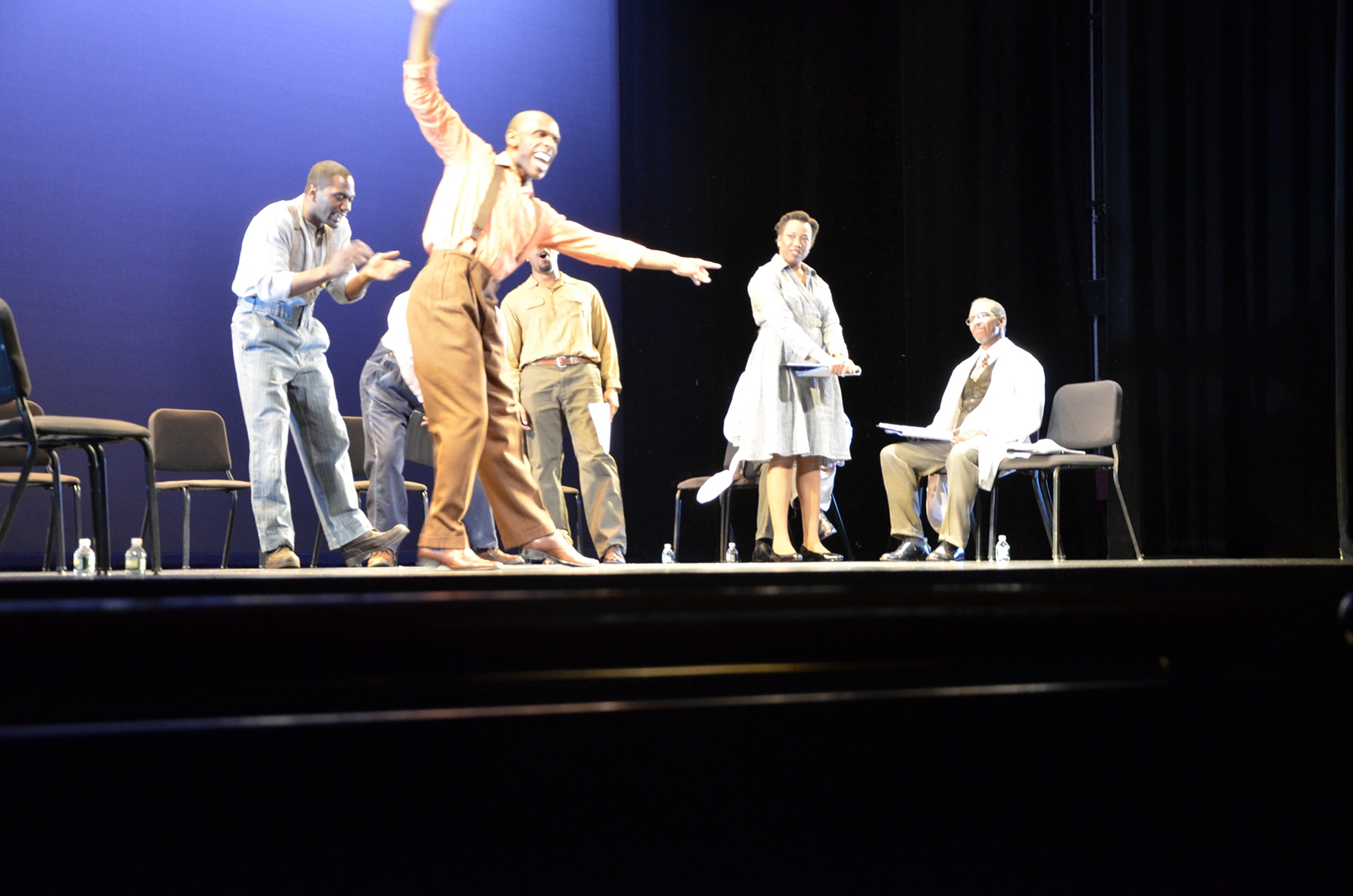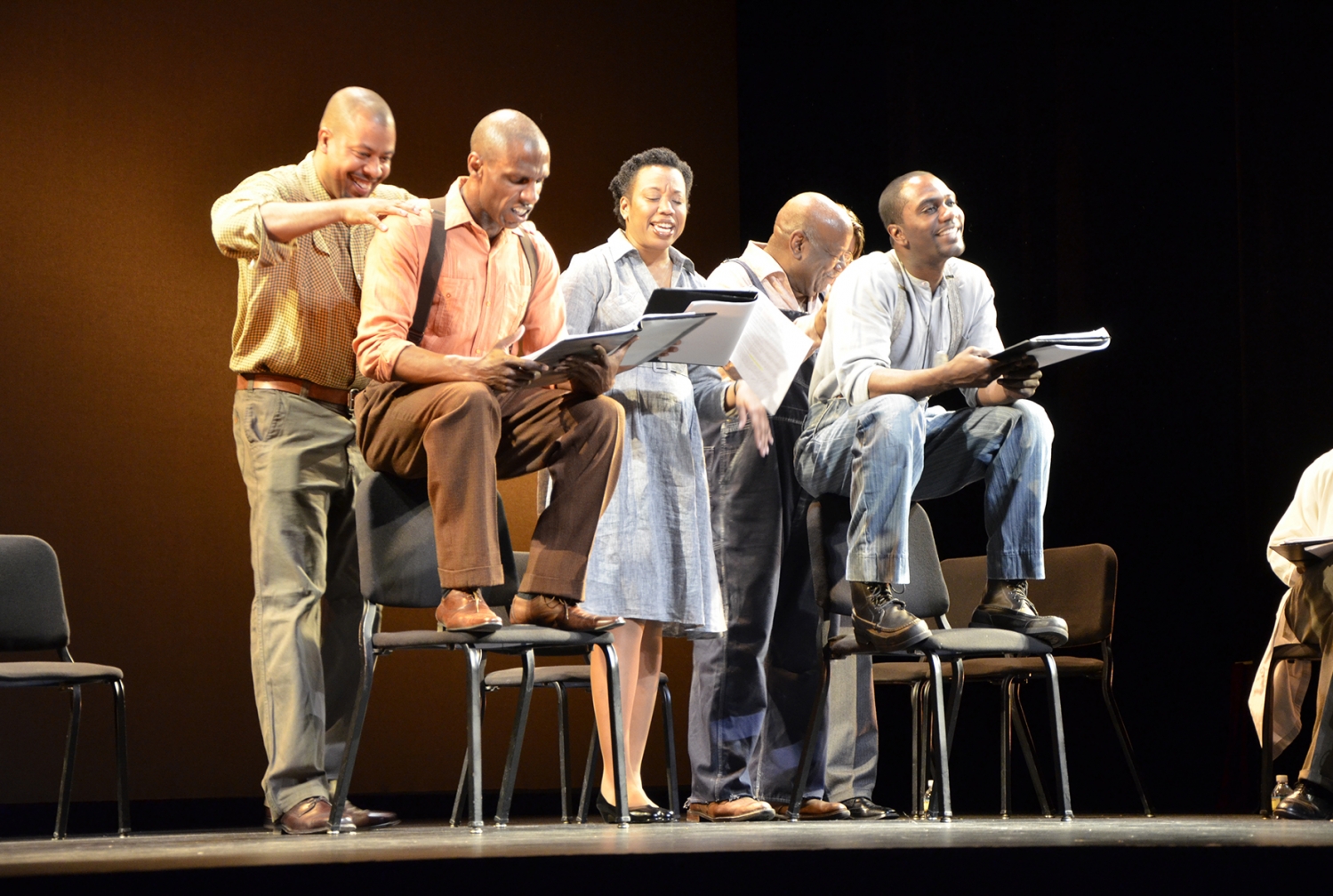It's been 40 years since revelations emerged that the United States deliberately and secretly withheld treatment for decades from a large group of poor, rural black men with syphilis so that doctors could study the natural progression of the untreated disease.
From 1932 to 1972, the U.S. Public Health Service followed 600 black men in Tuskegee, Ala., nearly 400 of whom had syphilis, who thought they were receiving free health care from the U.S. government. They were never told they had syphilis, nor were the treated for it after penicillin became a standard treatment. The government didn't terminate the study until after a whistleblower went to the press.
Earlier this month, more than 400 people attended an event organized by the Weill Cornell Clinical and Translational Science Center (CTSC), in collaboration with Hunter College, to commemorate the 40th anniversary and discuss its legacy.
"We've seen that members of the African American community continue to feel suspicious of medical research and mistrustful of medical professionals as a result of the Tuskegee Syphilis Study, so the harm has had a lasting impact," said Dr. Julianne Imperato-McGinley, Program Director, of the CTSC and Associate Dean of Translational Research and Education, which, through use of multi-institutional assets and the diversity of patient population, fosters translational research to move seamlessly from bench to bedside. "We hope we've started a conversation with the diverse communities of New York by being honest about the wrongs of the past while raising awareness about all that has been done to protect patients since."
The event, hosted at Hunter College's Kaye Playhouse, included a staged reading of the award-winning play "Miss Evers' Boys," a fictional account of the research nurse who cared for the men and penned by Dr. David Feldshuh, clinical instructor of emergency medicine at Weill Cornell and professor of theater at Cornell University. The reading was directed by David Ruttura, associate director of the Broadway play "Spiderman: Turn Off the Dark," with musical direction by Jonathan Rose, and featured a cast that included Helmar Augustus Cooper ("South Pacific," "Law and Order"), NaShawn Kearse ("Entourage," "Desperate Housewives"), Kevyn Morrow (Oliver Award nominee for "Ragtime"), Morocco Omari ("A Streetcar Named Desire"), Portia ("Ruined"), Will Rogers ("Golden Age") and Andre Ward ("Rock of Ages").
A panel discussion moderated by Dr. Joseph J. Fins, chief of the Division of Medical Ethics at Weill Cornell, featuring Dr. Carlyle Miller, associate dean for student affairs and equal opportunity programs at Weill Cornell; Dr. Mary Simmerling, assistant dean for research integrity and assistant professor of public health; Dr. Feldshuh; and Larry I. Palmer, professor of law emeritus from Cornell University, followed the reading.
"This evening was only possible through an almost miraculous coincidence of circumstances," said Dr. Imperato-McGinley, also chief of the Division of Endocrinology, Diabetes and Metabolism, the Abby Rockefeller Mauze Distinguished Professor of Endocrinology in Medicine and professor of medicine at Weill Cornell. "When I thought about producing this play, I was thrilled to learn that the playwright David Feldshuh was not only a physician himself, but also on the faculty of our parent university Cornell in Ithaca. Hunter College President Jennifer Raab graciously donated the Kaye Playhouse at Hunter for the reading. Also, friends and colleagues at Weill Cornell connected us with the theatre artists who brought the reading so wonderfully to life."
Inspired to bring controversy of Tuskegee to the stage

Actors perform a staged reading of the play "Miss Evers' Boys," from left to right: NaShawn Kearse, Andre Ward, Morocco Omari, Portia, Kevyn Morrow
Dr. Feldshuh was thumbing through the Journal of the American Medical Association one night more than two decades ago while a resident in emergency medicine at Hennepin County Medical Center in Minneapolis, Minn. when he saw an article about the book "Bad Blood," written by Professor James Jones about the Tuskegee syphilis experiment. He read the book and instantly became curious about the role the nurse played in the experiment.
"I came to realize that the doctors and nurses engaged in the experiment saw themselves as well-intentioned and caring. There was no shame," Dr. Feldshuh said. "Articles were published about the study. A simple question occurred to me: 'What would I have done as a physician if I had been asked to join the Tuskegee Study?' The play was my attempt to arrive at an answer to that question."
The play, which first opened in 1989 at the Center Stage in Baltimore, Md., and became the second-most produced play in American regional theater in 1991-92, was nominated for the Pulitzer Prize in drama and was adapted into an HBO move in 1997, winning four Emmy Awards, including Best Picture. Publicity from the film helped catalyze an apology to the survivors of the Tuskegee Study and their families by President Clinton on behalf of the United States.
When Dr. Imperato-McGinley approached him about a reading, he more than happily agreed to participate.
"I think this kind of event is an excellent example of using an art form to open avenues of discussion in medicine, research and science between medical professionals, patients and the community," he said.
Legacy of Tuskegee on medical ethics
Laws and regulations have been established in the years since the Tuskegee syphilis experiment to prevent such a breach of medical ethics from ever happening again. Congress passed the National Research Act in 1974 and created a commission to study and write regulations governing studies involving human participants.
"If you watched this play and thought you knew better, I would humbly submit, you missed the point," said Dr. Fins, also the E. William Davis Jr., M.D. Professor of Medical Ethics, professor of medicine, professor of public health and professor of medicine in psychiatry, during the event. "The point was not to make you smug in a 21st century way, but to realize the potentiality for evil still remains.
"Good people can be led astray and that good intentions can run astray when the broader societal context condones and sustains injustice and racism, as it did in the South and in Tuskegee, Alabama," he added. "I really hope the play made you uncomfortable. If it did, it served its purpose and forced you to reflect deep inside, if you too were susceptible to kindness, to moral blindness and good intentions run astray."

